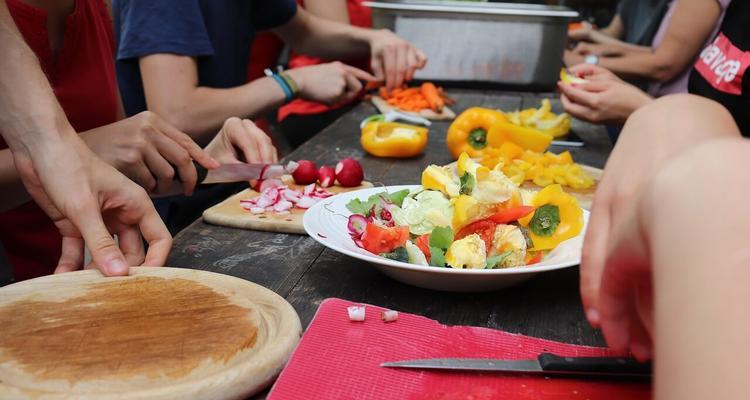From Challenges to Change: The Barcelona Living Lab for Sustainable Food Systems
In the framework of designing multistakeholder and multilevel strategic plans for food systems transformation, the CLEVERFOOD platform hosted a webinar introducing the practical tool DESIGNING A MULTISTAKEHOLDER AND MULTI-LEVEL STRATEGY FOR FOOD SYSTEM TRANSFORMATION, developed by the FoodCLIC Barcelona Living Lab (LL). The tool is a participatory methodology aimed at guiding food actors from understanding persistent challenges to co-creating a shared strategic plan for food system transformation.
Systemic Approaches in Research and Innovation systems
As highlighted by Jacqueline Broerse, Professor of Innovation and Communication in Health & Life Sciences at the Athena Research Institute, planning for food systems transformation requires recognising that the pathways are “complex, winding roads”, and food actors must anticipate barriers and build cycles of action to guide progress. In Research and Innovation (R&I), linear models of knowledge production are one of the main systemic barriers to real-life impact. “Even when we use a participatory approach, if we still follow a linear paradigm, we risk creating solutions that don’t scale or bring the systemic change we hope for”, Rosina Malagrida, IrsiCaixa -Living Lab for Health, observed.
Shifting to new participatory and systemic approaches is crucialand stressed in the CLIC Framework methodology, which builds on four key principles:
- Collaboration across academia, industry, administration, and citizens
- Multilevel engagement, from local to global
- Responsiveness and adaptability to changing contexts
- Iterative learning cycles that embed reflection and adaptation
Piloting the tool in the Barcelona Living Lab
The Barcelona Living Lab, coordinated by IrsiCaixa, has been piloting this multistakeholder and multilevel strategy practical tool in two neighbourhoods with low socio-economic status - Fondo and Sant Cosme - to make local food environments healthier, fairer, and more sustainable. Using the System-Oriented Dialogue Model (SMD), the Living Lab worked with more than 100 local organisations through the three phases envisioned by the methodology - understanding and visioning, strategizing, and programming - to co-design initiatives for improving local food environments.
This process led to the creation of ALISON, a collaborative community network of residents, producers, associations, and policymakers testing new ways of making healthy, sustainable food more accessible. The activities include community kitchens, mutual learning programmes, community-supported agriculture (CSA) schemes, and food surplus management projects. The ALISON digital platform keeps these communities connected, enabling continuous collaboration and shared learning. The next phase of this process will focus on policy innovation - translating lessons from the pilots into policy roadmaps that embed community-driven principles in local governance and inspire complementary changes at regional and national levels.
Real-Life Successful Examples
The Barcelona pilots are part of a wider movement showing that participatory, system-based approaches can deliver real and lasting results. A notable example is the Amsterdam Healthy Weight Approach, where twenty years of coordinated, community-driven work helped reduce childhood overweight and obesity rates from 21% in 2012 to 18.7% in 2017 - proof that long-term, joined-up action can shift complex systems. FoodCLIC shows how stakeholder engagement, innovative R&I approaches, and supportive policy can work hand in hand to create healthier, fairer, and more sustainable food environments across Europe.
This article was written by Beatrice Ruggero from FoodCLIC network partner ICLEI Europe
Publishing date:
FOODCLIC. We are connecting people, food, policy & places.
FoodCLIC is a four-year project funded by the EU. The project runs from September 2022 to February 2027. The acronym FoodCLIC stands for 'integrated urban FOOD policies – developing sustainability Co-benefits, spatial Linkages, social Inclusion and sectoral Connections to transform food systems in city-regions


